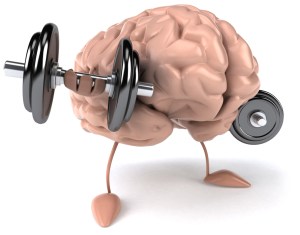Managing your stress levels and mental health has never been so important as we battle our way through and out the other side of Covid-19. These new and often scary challenges are of major concern to organisations as well as individuals.
International Stress Awareness week 2020 or #StressAwarenessWeek
Is a week filled with articles, hashtags, personal stories, developments, reports and statistics highlighting the impact our mental health has upon our everyday living. It will provide new tools, diagnostic pathways for support and hopefully make you feel that you are not alone.
Almost one in five adults, that’s almost 20%, are thought to have experienced some form of depression during the lockdown in June of this year. Compared to the period before (July 2019 to March 2020) when numbers were about one in ten.
Stress and anxiety are described as the top two most common areas in which adults experience some form of depression.
International Stress Awareness Week
The development of the week came as an expansion of Stress Awareness Day founded in 1998. Ten years later, in 2018, the awareness week was created to approach stress from a preventative angle rather than a curative one.
This year the event will address the following subjects;
o People’s experiences with mental health challenges and what can be done to support them
o How employers are responding to mental health issues and what can we learn from them
o Campaign against mental health stigma
o The importance of stress management professionals in alleviating stress with practical and proven reliance techniques
o Further actions in light of the pandemic
o Ensuring those suffering know where to seek support
 Doing Our Bit
Doing Our Bit
Here at the clinic, we have been helping our community since we became a community interest company or CIC back in 2014. What this means is that instead of pocketing profits, we give them to the community. Over the years, we have done this through providing affordable, low-cost and free services.
When the lockdown came, it put most of our practitioners at a loose end because they couldn’t see many of their clients. Instead of resting on our laurels, we decided to set up a free talking therapy service.
In the beginning, people were hesitant to call but as soon as word got around the calls came in thick and fast. Our practitioners stepped up to the mark, never turning anyone away. For three months, we answered over 70 calls accumulating over 150 hours of FREE mental health support.
Social prescribers have personally thanked us for reducing mental health waiting times. Our therapists have been commended for their telephone and video therapy sessions to such an extent that some clients have asked to be removed from waiting lists for mental health support.
 We didn’t Stop There
We didn’t Stop There
Once we were able to return to The Devon Clinic in Hyde Road, we set about gaining funding to enable our practitioners to return to work and continue their vital community support work. After several rejected applications, we applied to the National Lottery. We were granted funding bt the Lottery Awards for All program to provide mental health support to the residents of Torbay adversely affected by Covid.
We are proud to be in the position of being able to provide Six Funded Talking Therapy Sessions funded by the National Lottery Awards For All.
You can find out more about our funded talking therapy sessions and how to apply HERE.
To this day and in light of the recent nationwide restrictions, we will continue to provide where possible access to a reduced rate, part and fully funded talking therapy sessions for those adversely affected by Covid. Please contact us either by telephone 01803 500300, email reception@devonclinic.co.uk or by completing the form below.
[activecampaign form=3]










 To understand why stress affects our brain, it is important to understand how the brain works. The brain is not a single unit, but a group of different parts that each performs different tasks, says Dr Ressler.
To understand why stress affects our brain, it is important to understand how the brain works. The brain is not a single unit, but a group of different parts that each performs different tasks, says Dr Ressler.



 It is not advisable to check your phone if you wake during the night.
It is not advisable to check your phone if you wake during the night. We all must deal with stress at work but, left unchecked stress can cause not only mental but physical harm to your wellbeing.
We all must deal with stress at work but, left unchecked stress can cause not only mental but physical harm to your wellbeing.
 For myself with anxiety, my boyfriend is an enigma. He drives long distances, eats expired foods, phones to order take away and goes to crowded places, all without fear. When we went to see Star Wars, the movie, the character in front of the theatre didn’t make my boyfriend think of a mass shooter. Not me. I have anxiety and it’s sometimes crippling. The very thought of one terrible thing happening on my way to work will have me frantically googling such things as ‘does invisible mould exist?’
For myself with anxiety, my boyfriend is an enigma. He drives long distances, eats expired foods, phones to order take away and goes to crowded places, all without fear. When we went to see Star Wars, the movie, the character in front of the theatre didn’t make my boyfriend think of a mass shooter. Not me. I have anxiety and it’s sometimes crippling. The very thought of one terrible thing happening on my way to work will have me frantically googling such things as ‘does invisible mould exist?’